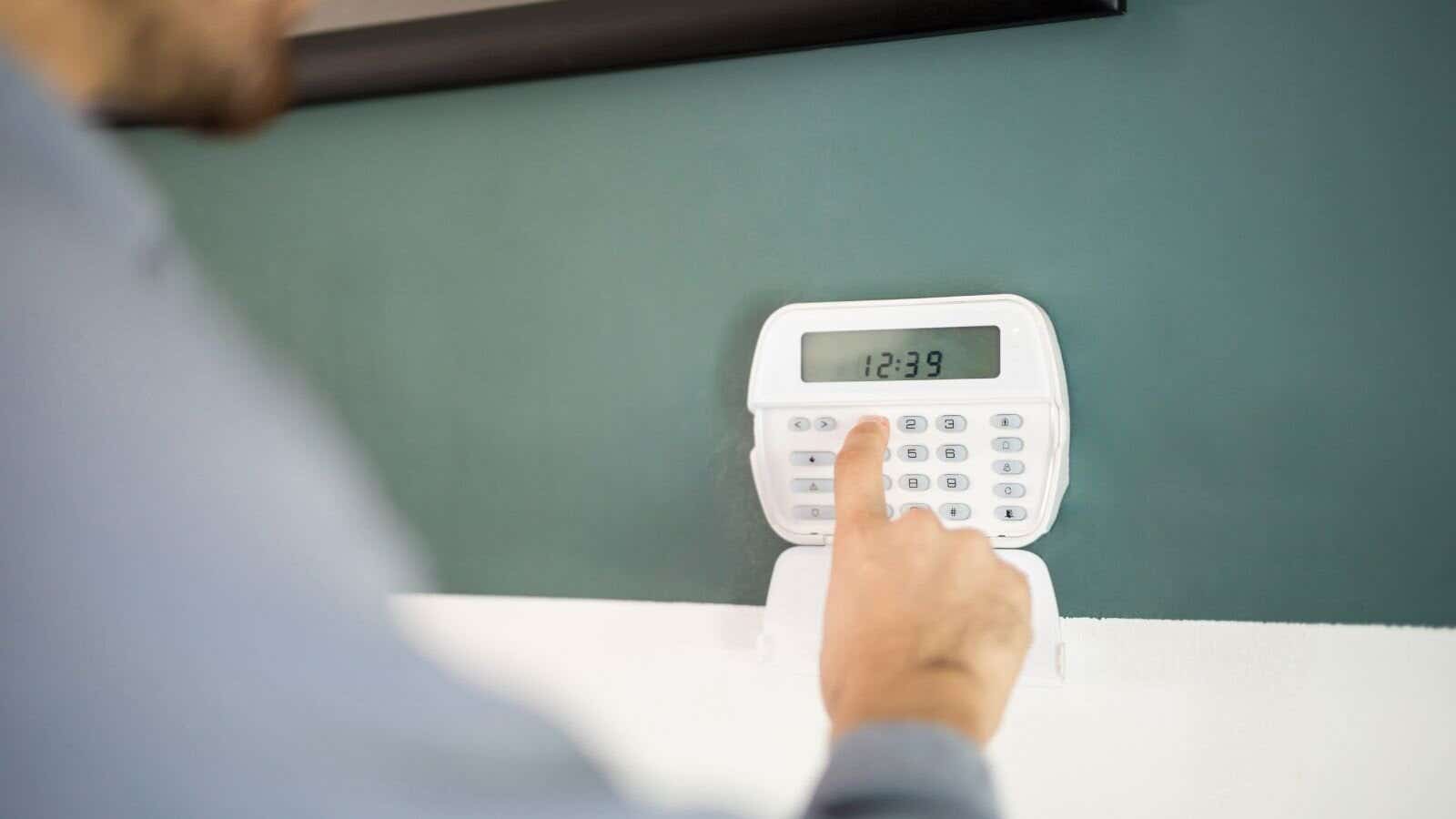Do I need a burglar alarm?
While a home security system isn't a legal requirement, there may be good reasons to invest in one.
According to the Office for National Statistics, it's estimated there were approximately 266,489,burglaries in England and Wales in the year to March 2024.
Visible burglar alarms can act as a deterrent for opportunistic burglars. If a burglar doesn't target your property because they see it's alarmed, then the security system has more than paid for itself.
Alarms have secondary benefits too. On a personal level, they can help provide peace of mind at home. And they can also come with potential financial benefits, including reduced home insurance costs.
Will I get cheaper home insurance if I have a burglar alarm?
It depends. Some providers will offer cheaper home insurance, but some won't. This varies depending on the type of alarm system you have, and also the insurer in question.
For this reason, it's always worth comparing a range of providers, as some may offer a more inviting discount than others. Plus, you're more likely to get a discount if your alarm is approved by the National Security Inspectorate (NSI).
When you compare home insurance quotes with Uswitch, we ask which type of burglar alarm you have.
The options are:
- Norwich Union Direct (NUD) audible-only alarm
- NUD monitored alarm
- National Approval Council of Security Systems (NACOSS) audible-only alarm
- NACOSS monitored alarm
- Security Systems and Alarm Inspection Board (SSAIB) alarm
- Other alarm
We also ask if it's professionally maintained, and if it alerts the police when triggered.
If you choose 'other', your chosen insurance provider may have further questions about your alarm before they give you a final price. For example, they may wish to know if it was professionally installed, if it has NSI certification and so on.
Also, there's likely to be a requirement that you keep your alarm in good working condition in your home insurance policy T&Cs. You may be required to have it serviced annually, for instance.
What are the different types of burglar alarms?
The type of alarm you choose will be influenced by both your budget and the level of security you need. Here are the different types to consider.
Wired vs wireless alarms
The first thing worth knowing is that home security systems are either wired or wireless. Wired systems have cables connecting the sensors and control panel to the power source. And wireless uses Wi-Fi technology.
While wired systems tend to be more expensive to install, they’re often better value over time, as parts tend to be cheaper and you don’t have to replace batteries. Wireless systems, on the other hand, tend to be cheaper and easier to install out of the box.
While wired systems were traditionally more reliable, advances in wireless tech have helped to close the gap. It’s also worth considering a hybrid system - especially if you already have a wired system in place - which combines elements of both.
Audible-only alarms
These alarms - AKA bell-only alarms - make a noise if a break-in is detected. They’re usually visible outside, with a flashing light. According to the police, two visible alarms are better than one.
Audible-only alarms are not monitored, and the police won’t be informed if they’re set off. But they will attend if there’s evidence that a crime is occurring - for example, if neighbours call to report a break-in.
Monitored alarms
These make a noise when triggered, but also send off an alert, usually to a private security company. They’ll get in touch to see if everything’s okay, or contact a nominated family member or neighbour if you’re away. They may also contact the police if they deem it necessary.
Smart burglar alarms
Smart home security systems are becoming much more popular, often connected to smart home hubs. You control and monitor the system with an app, and will receive notifications if the alarm is set off.
Rather than regular alarm sensors, these systems tend to use smart devices connected to your home Wi-Fi. It’s possible to monitor the system yourself, or pay for a subscription to a control centre. This works in much the same way as a monitored system, with the control centre alerting the police if necessary.
Can I install a home alarm system myself?
It is possible to install a security system DIY, especially in the case of wireless and smart systems, which often come out of the box.
Wired systems are more complex, and will usually require professional installation. Plus using a certified professional may be necessary to get a discount on your home insurance policy. Be sure to check they're NSI or SSAIB certified.
It's also important to make sure they're professionally maintained, and kept in good working condition. Check your policy details to see exactly what's required by your provider.
How much does a house alarm system cost?
The cost of a home alarm system will be variable depending on several factors, including the type of alarm, complexity of installation and size of your property.
According to Checkatrade, you can expect to pay roughly the following for an introductory system:
- Audible-only wireless alarm (2 sensors, 1 door contact): £525
- Audible-only wired alarm (2 sensors, 1 door contact): £500
- Smart alarm system (2 sensors, 1 door contact, token required): £650
As for labour, a burglar alarm technician's hourly rate tends to come in at £60-£80 per hour on average.
It's worth noting that - in addition to getting the kit (and also hopefully a home insurance reduction) - you're also paying for peace of mind.
If having an alarm system acts as a deterrent for potential burglars, this can have a postive impact on your mental health. If it helps to reduce stress and anxiety, you may feel that the price of a burglar alarm is worth the investment.
Compare home insurance quotes
See a range of home insurance quotes in just a few minutes when you compare with Uswitch

